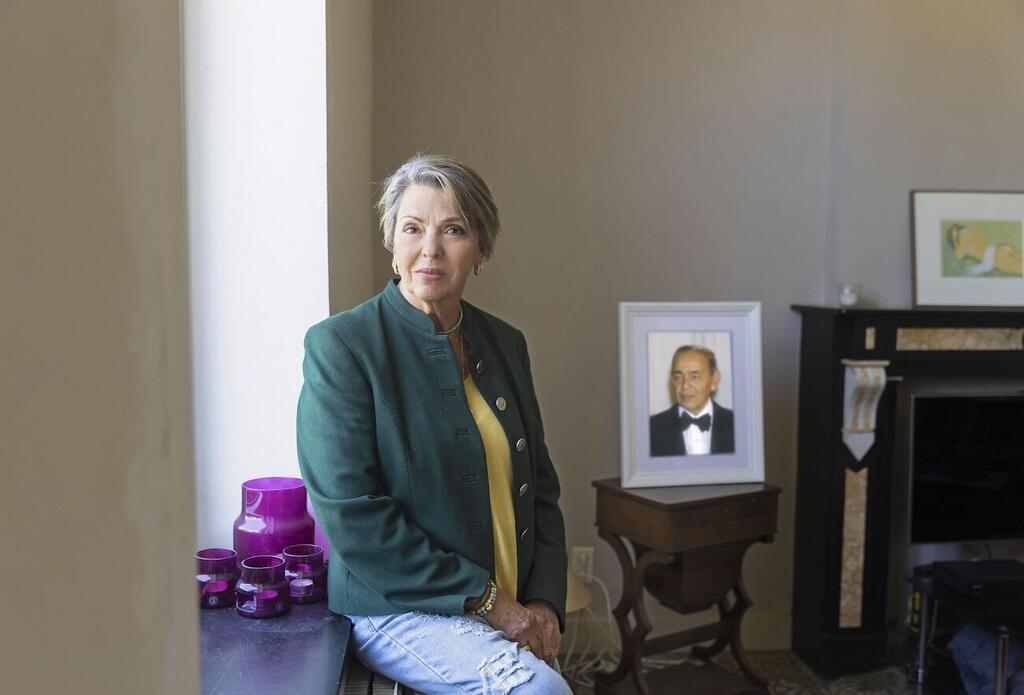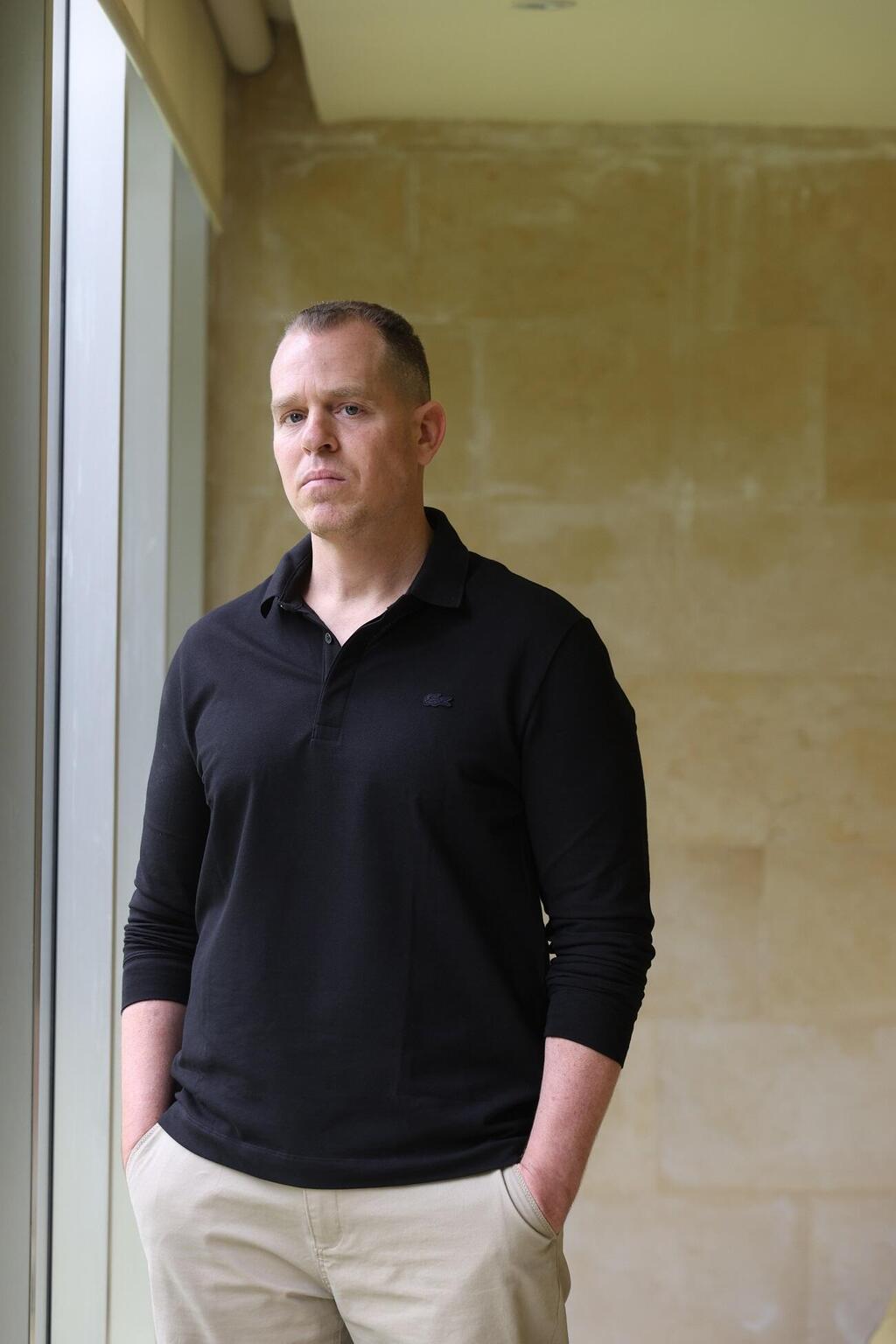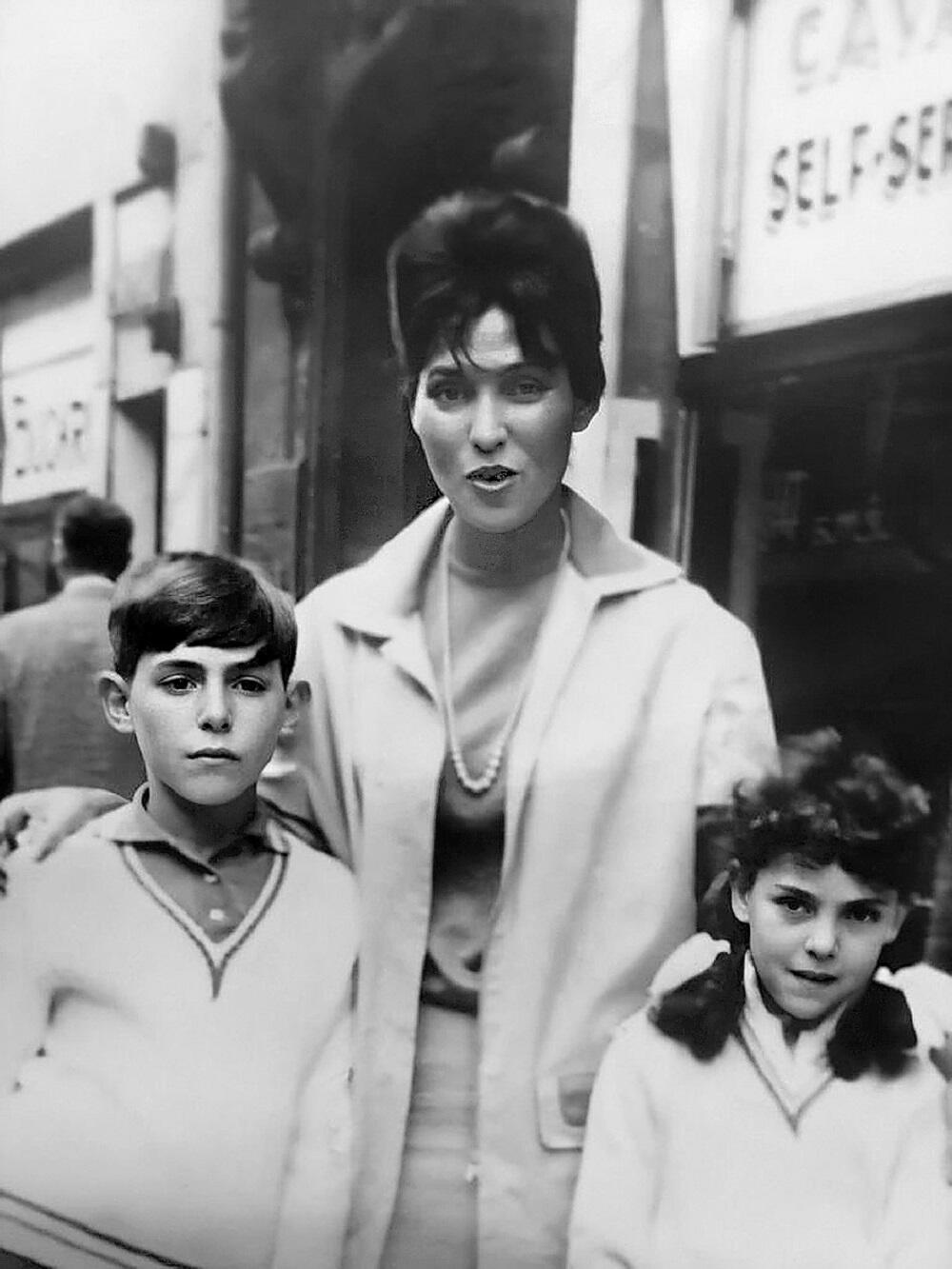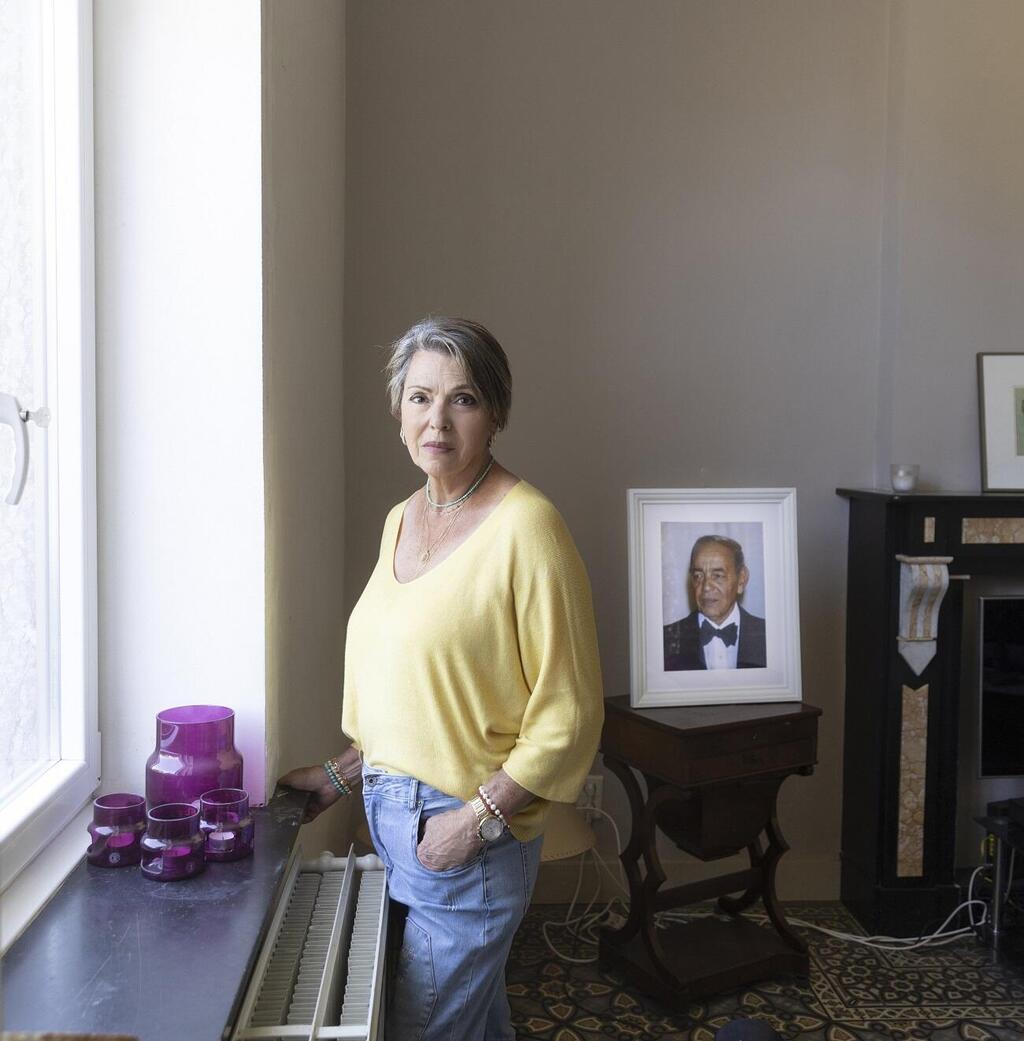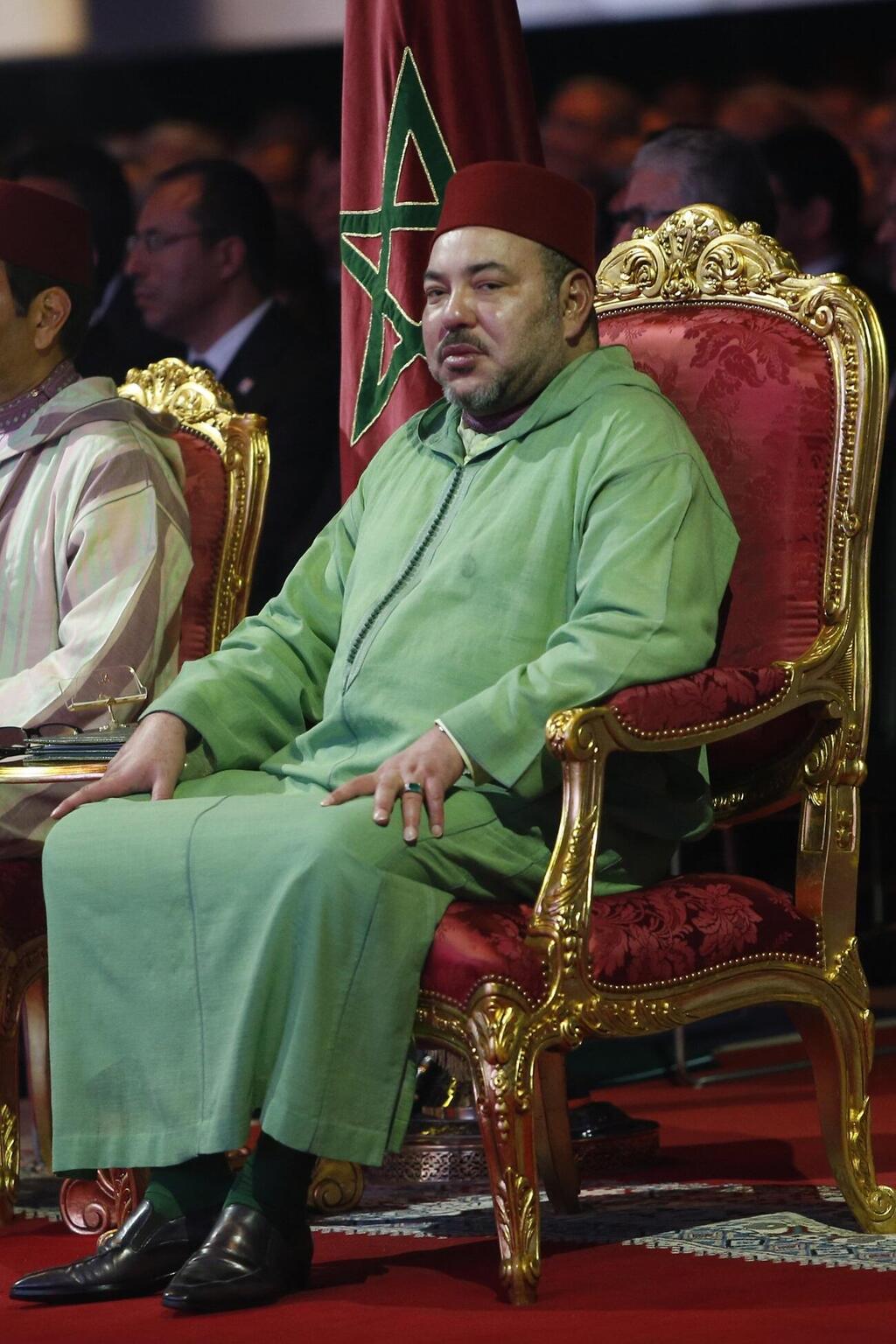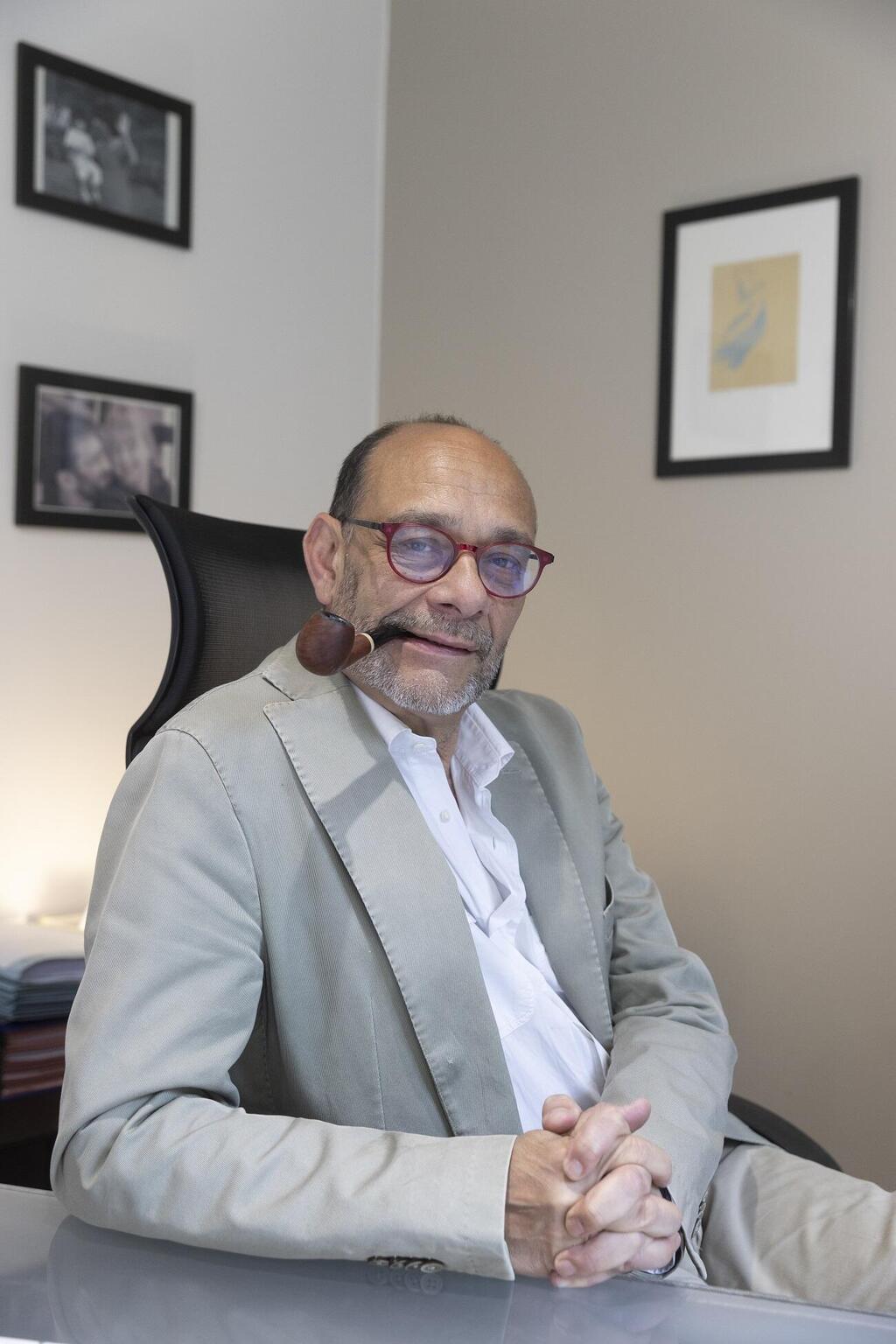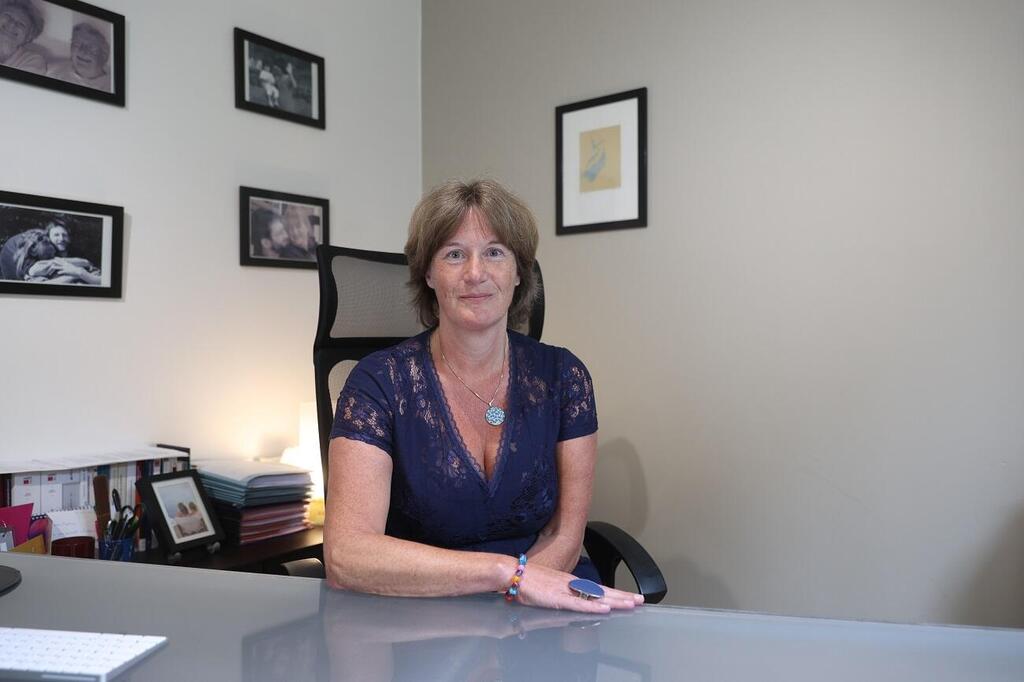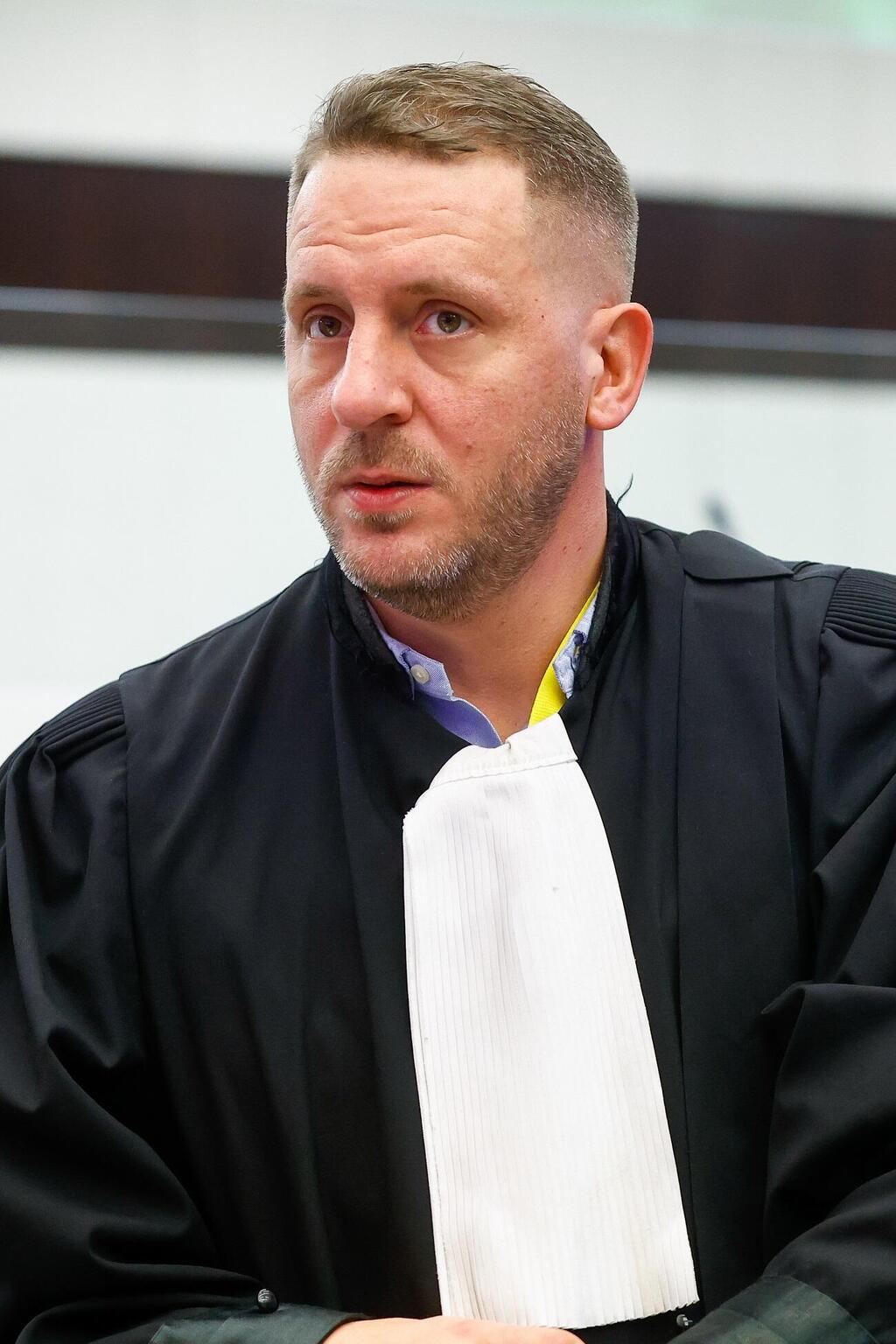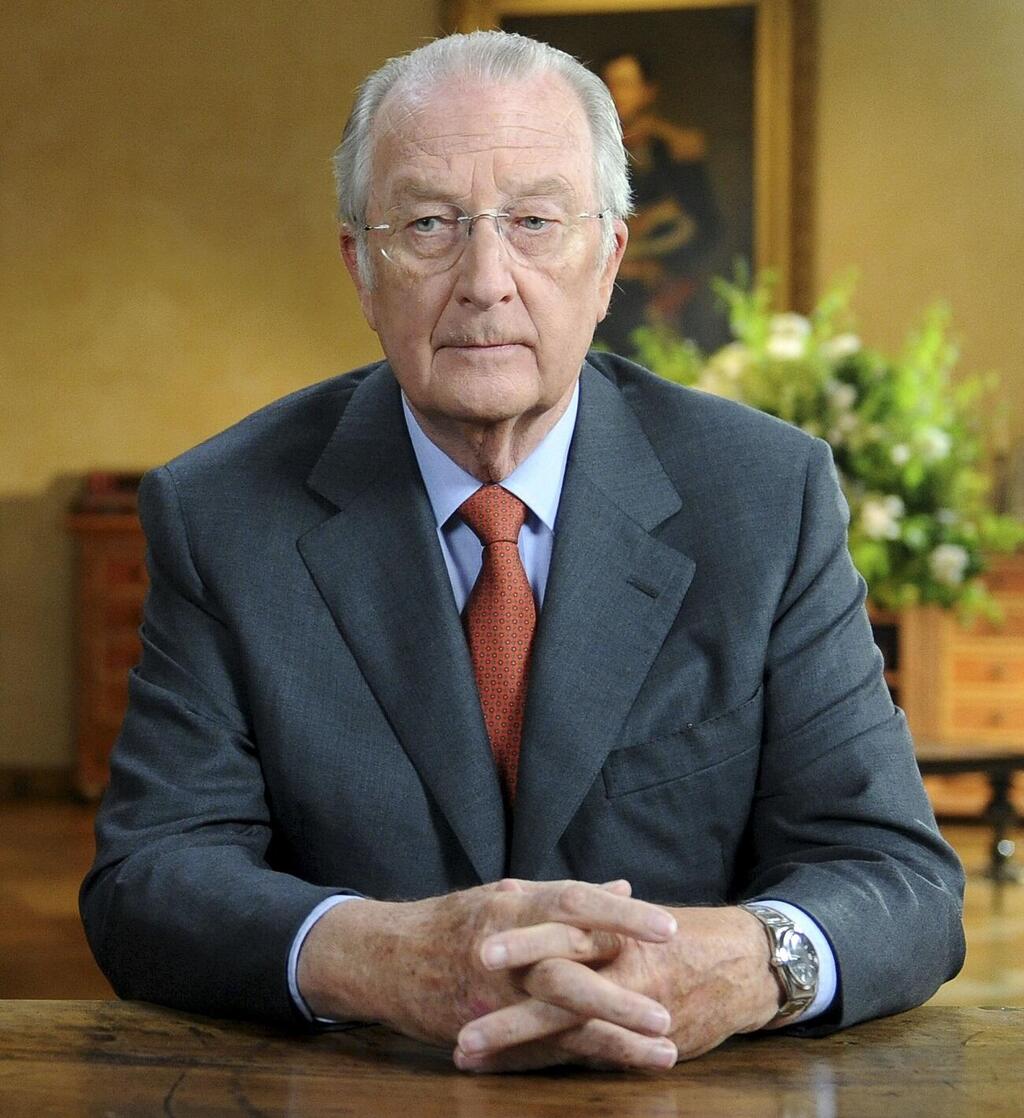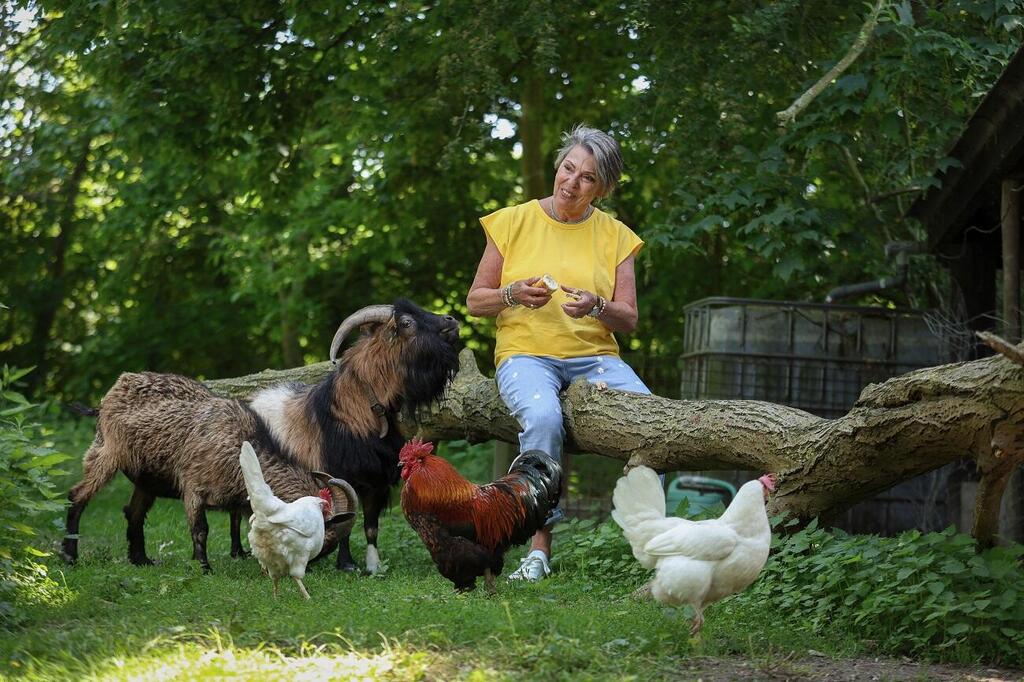Getting your Trinity Audio player ready...
It was only on the day of King Hassan II's funeral on July 5, 1999, that Hedva Sela decided to reveal her biggest secret. "I sat in the living room of my apartment in Kibbutz Ma'ale HaHamisha with my middle son Eldad and we watched the funeral procession," she recalls.
Read more:
"And then, in one moment, I dropped the bombshell on him. I told him that King Hassan II was my father. Eldad, who was 24 at the time, looked at me in shock and said, 'Are you crazy? Where did that come from?' It was only then, for the first time, that I started talking."
King Hassan II died in the month he celebrated his seventieth birthday. The news of his death kept Hedva glued to the screen. "All TV channels in Morocco, France and even in Israel broadcast a lot of details about the 38-year reign," she recounts.
"He was considered a great leader who propelled Morocco forward and turned it into a modern country. And I watched the funeral and remembered stories from my grandmother, Mercedes, about messengers who came to her house in fancy cars to pick up my mother, Anita, for meetings with the king."
What prompted you to reveal the secret at that moment, after all those years?
"Eldad asked me why I was so captivated by the Moroccan king’s funeral, so I simply answered, 'Because he's your grandfather.' It was a liberating statement for me. Eldad asked me to repeat the words, he was in shock."
Her son Eldad says, "I remember when I was in sixth grade, I did a family tree for school, and I found nothing from my mom's side. It seemed strange to me, but as a child, I didn't question her. It was only at King Hassan's funeral, when my mom revealed the secret, that I decided not to give up. You could say that I am the driving force behind her, pushing her to receive recognition as the daughter of the king.
Let it be clear, we are not seeking money. We just want the five children of King Hassan to acknowledge my mom as their sister. I know it will be difficult, but in the end, we will achieve what is rightfully hers."
Encouraged by Eldad, Sela moved from Israel to Belgium a year ago. Here, she is known as Jean Ben-Zaken and resides in a small village, the name of which, like other identifying details about the place, she insists on keeping undisclosed. From here, she also manages the lawsuit to be recognized as the daughter of the late King Hassan and as the sister of the current King Mohammed VI, his three sisters and his younger brother.
Sela already scored her first victory in court: her attorneys, siblings Marc and Nathalie Uyttendaele, convinced the court that Raoul Jossart, Anita's husband, is not her biological father. "The judges didn't even require Raoul to undergo DNA testing," she recounts.
"The lawyers managed to convince the judges quite easily that he was abroad at sea during my mother's pregnancy on a long voyage in Scandinavia."
Hedva learned about the affair between King Hassan II, who at the time was the crown prince and heir to the throne, and Anita from her grandmother Mercedes and later gathered additional details from her mother's sisters to complete the puzzle.
And your mother, did she never tell you?
"She would drop a word here and there, but she never agreed to sit down and tell the entire story. Only once, when our relationship softened a bit, she glanced at me and said, 'You know who your father is. But you'll never be able to reach him, to the royal palace in Rabat.' And that was it. Not another word. She closed her mouth and refused to add anything until the day she died. I do know that she wrote a book, but someone made it disappear after she passed away."
Why do you mean the relationship softened?
"I was never close to my mother. Right after I was born, she boarded a plane with my brother Jackie, flew off to Brussels, and left me, a tender child, with my grandmother Mercedes. My grandmother was outraged about the abandonment, and when I was 11 months old, she bought a plane ticket, put me in a baby basket, wrapped me in a blanket, attached bottles of milk, diapers and clothes, and handed me over to a Saben Airlines stewardess. That's how I made my way out of Morocco, a baby in a basket."
At the Brussels airport, one of Anita's lovers, who didn't bother to come herself, waited for the baby. "Straight from the airport, I was taken to a small village, to a large foster family who cared for orphans. We were eight young children at the time, and from the beginning, I was considered an outsider. The Belgian babies didn't have parents, and I had a mother who wasn't interested in raising me. She preferred to pay a lot of money, the source of which I still don't know to this day, to the foster family."
Hedva stayed with the foster family until the age of 13. "I didn’t see my mother often, very rarely, but I still admired her. She was beautiful, exotic, elegant, always impeccably dressed. She lived in luxurious apartments with spacious rooms, and there were always men around her. When I arrived for unexpected visits, the maid would hide me in a side room. It didn't suit my mother to introduce me to her lovers.
When the fostering period ended, Hedva moved to an upscale boarding school. "Again, I only saw my mother occasionally, but at a certain point, she started inviting me more often and took me to tailors and clothing stores. She began dressing me in outfits that matched hers, as if we were sisters. Later, I realized that my mother wanted to be seen with me to appear respectable. A beautiful woman with a well-behaved girl, looking at her mother with admiration.
During this time, her mother's partner Raoul filled the role of a father. "He was twenty years older than my mother, my grandmother's age, who approved of their relationship. Every time he returned from his travels, he would shower me and my brother Jackie, who also didn't live at home most of the time, with gifts and sweets. I adored Raoul. In contrast to my distant mother, Raoul was more amiable. I called him 'Dad,' but my aunts said, 'Don't bother,' and he himself didn't insist."
At the age of 18, Hedva decided to immigrate to Israel. In 1969, she arrived at Kibbutz Hukok and joined an agricultural collective. Moving to Israel did not put an end to her wanderings. "I traveled to many places across the country, had husbands and other men. I'm not attached to a specific place. A house or a city don’t do it for me."
And the fact that you're the daughter of the king? What place did it hold in your life?
"On the day I came to Israel, I decided to set aside the story of the Moroccan royal family. I didn't share the secret with anyone."
Hedva wandered between Kibbutz Ma'aleh Hamishah and Eilat, found work in Neve Ilan, and then settled in Belgium with her first husband Meni Shaked, and their two eldest children – Niv, 50, who resides in New York and works in flower delivery and Eldad, 47, a fitness instructor at the luxurious Accadia Hotel in Herzliya. The couple had a third child, a daughter named Neta, 37, who works in a government office. They divorced, and Hedva returned to Israel and married Yehoram. However, this marriage also didn't last.
Now she resides in a rented room in a large house on the outskirts of the small village. Twice a week, she volunteers at a clothing stand operated by the Red Cross for the needy and feeds the elderly. From there, she goes to the family court in Brussels, where the legal battle is being waged against her half-brother, King Mohammed VI, her three sisters and her younger brother.
"I want official recognition of my roots," she stresses. She also visits her six grandchildren in Israel every two to three months ("I come whenever there's a cheap flight").
"Today, I give myself less to others," she says. "Throughout my life, I was accommodating to everyone, even in my relationships with men. I was the good girl who didn't ask questions, although I harbored many questions within me throughout my life. It can be said that I was hurt by everyone around me, except for my wonderful children. That's why I made the decision not to form any more romantic relationships. I understand that I'm not good at it."
The court proceedings in Brussels are progressing slowly. Some hearings are attended by lawyers, while in others, Hedva herself participates. "I trust my attorneys and know they are doing a diligent job," she explains, "but overall, I find the court very challenging."
I meet Hedva's legal team, Marc Uyttendaele, a human rights specialist married to the former Belgian Justice Minister, and his sister Nathalie, a family law expert, at their spacious office at seven in the morning. The walls are adorned with commendation certificates, attesting to their success.
"In the initial stage, the court determined that Raoul Jossart is not Hedva's father," says Nathalie. "We definitely won that round. Following the decision, Hedva changed her surname from Jossart to Ben-Zakan, her mother's name. We presented compelling evidence that Jossart could not be the father and that he was merely a 'convenient arrangement.' Now, in the second stage, we are focused on identifying the biological father. That's our claim."
Behind the scenes, her son Eldad is running the investigation outside the courtroom. He assembled a team of strategists and advisors in Israel, recruiting legal consultants and, most importantly, encouraging his mother not to give up. "I am Eldad's emissary," she says, "carrying out the instructions he sends me."
In addition, Eldad collaborates with a former Shin Bet agent and a team of investigators based in Morocco. Over a span of four years, these investigators diligently collected evidence and conducted photo documentation.
One significant discovery was the unmasking of a concealed apartment on Anfa Street, believed to be the venue for the encounters between Eldad's grandmother and the king. It was revealed that the apartment was registered under the name of a Jewish family who did not actually reside there.
Additionally, they obtained photographic evidence of another apartment on King Mohammed V Boulevard, where the prince, prior to ascending the throne, would meet with young girls, including Anita. Moreover, their investigation even led them to the hidden underground chambers within the royal palace, serving as yet another meeting location.
"These photographs," tells me the former Shin Bet agent who now heads a private investigations firm, "were presented in the Belgian court along with Hedva's birth certificate. The court ruled that the birth certificate bearing Raoul Jossart's name as her father was forged."
The defendants—the reigning king and his siblings—are represented by their attorney, Stanislas Eskénazi. "It's definitely strange," claims Marc. "The defendants transferred the case to the Ministry of Foreign Affairs, who appointed Attorney Eskénazi."
What’s so strange about it?
Nathalie: "It is customary for the defendant not to appear in court personally but to send a lawyer, especially when dealing with high-ranking individuals. However, Attorney Eskénazi represents the Moroccan Foreign Ministry, which is not even mentioned in the lawsuit. We are suing individuals here, not a governmental body. Our case is against individuals, and they choose to present themselves as a kingdom, representing themselves through the Foreign Ministry."
Do you find it significant that the lawyer representing the Moroccan Foreign Ministry, essentially the king and his brother, is Jewish?
"I prefer not to comment on his identity and his personal beliefs. That is not the case we are dealing with. Any qualified attorney is acceptable to me."
However, a prominent member of the Jewish community in Brussels believes that the identity of the lawyer carries significant implications. "It’s right thinking to appoint a Jewish defense attorney. This demonstrates that the royal palace relies on Jews and maintains good relations with Jerusalem. Everyone benefits from this process, except for Hedva, who is depicted as a greedy woman."
In response to the lawsuit, Attorney Eskénazi filed a counterclaim against Hedva, alleging that her lawsuit is false. The counterclaim states that she has no connection to the royal palace, and therefore it is inconceivable that members of the royal family will be subjected to a DNA test.
"I see the lawsuit against us as a very simple and clear-cut story," declares Attorney Eskénazi in a phone call , asserting, "Hedva adopted an address in Brussels from which she operates her lawyers, but in reality, she resides and works in a hotel in Israel. Everything in this story is fabricated. She will never be able to prove her connection to the royal family.
Hedva's attorney met with a very senior diplomat at the Moroccan embassy in Belgium and presented the demand - either a partial status and title for the king's half-sister or a high monetary compensation. And we informed that the demand was unacceptable from the first court hearing.”
"No one will threaten the Kingdom of Morocco or the royal family. No one will force King Mohammed VI or any of his four brothers and sisters to undergo a DNA test. I'm telling you, and you are welcome to quote me: all of this is bullshit. This woman is not the daughter of Hassan II, the previous king of Morocco. She is trying to get money, a lot of money, but we won't give it to her. We will maintain good relations with Israel and debunk this story."
Hedva's attorneys admit that a meeting did take place at the embassy, but no financial demand was ever raised.
Was there an attempt by the defendants to offer hush money, deliver a signed envelope, and close this embarrassing chapter from their perspective?
Marc: "Our side is not talking about money at all, but that didn't stop Attorney Eskénazi from mentioning a sum of 16 million euros in interviews with the media. We have no idea where he got that amount from because we have never mentioned money, not even once.
"The other side is doing everything to smear Hedva, portraying her as a cheap and vindictive woman. Regarding the DNA test that the king and his siblings oppose, I want to remind everyone that the trial is taking place in Belgium, not Morocco, and it is up to the judge here to decide whether to demand the test. We will get to the truth, we have patience."
How will you proceed if the royal family insists on not undergoing a DNA test?
Marc: "There are further steps that need to be taken according to a certain procedure, and we hope for the best."
Hedva is concerned for her safety due to the lawsuit. Someone might harm her. Do you share her concern?
Marc: "We have no reason to believe that her life is in danger, but I can certainly understand her concerns when facing the royal family. After all, they are a dictatorial monarchy. Nevertheless, as her attorneys, we have no evidence of any threats or attempts to harm her."
Nathalie: "It is reasonable and logical in my opinion that Hedva would be apprehensive and request that her place of residence not be mentioned."
Standing up against a royal family is not easy.
Marc: "There's a woman here who has suffered her entire life from ostracization. She was thrown and tossed around, and it definitely caused her great suffering. But I am impressed by Hedva's remarkable inner strength because she is prepared and willing to enter this fight and go to great lengths, even risking herself. I am also impressed that she is broken inside and needs to make peace with herself, to rebuild herself.
"You see, she is reaching her truth toward the end of her life, and she needs to connect the life she has lived with the life story that has been hidden from her for many years. And here we come into the picture, to help."
Do you believe she will win?
"I smile to myself and say, patience."
Hedva did not come to attorney Uyttendaele by chance. Just a year ago, he concluded a similar process in the case of Belgian artist Delphine Boël, who demanded that King Albert II of Belgium recognize her as his daughter. In the course of the lawsuit led by Uyttendaele, the king was forced to undergo a DNA test that unequivocally proved that the married king and father of three children was also the father of Delphine, who subsequently received substantial financial compensation and noble status.
"The difference between Delphine and Hedva, who are more or less the same age, is that Belgium has a democratic system, even within the royal family, whereas in Morocco, we are dealing with a stringent dictatorship. In Delphine's case, I was able to act freely in front of the political authorities. Hedva's case is entirely different."
I asked Hedva if she had met or consulted with Delphine. "I am familiar with her story, of course, but until now, I haven't made an effort to meet her. Our stories are similar, but the circumstances are different."
I first met Hedva in 2005. I arrived at the neighborhood gym and noticed a young, unfamiliar woman looking at me. "Are you the journalist?" she asked me. "Are you the writer who covers Arab world affairs?" When I replied affirmatively, she gestured to a tall young man standing by, listening attentively to our brief conversation, and urged him to share his story. It was Eldad, Hedva's middle son, who worked as a fitness instructor at the gym. "You should definitely meet my mother," he said, and when I asked why, he replied, "We believe she is the daughter of King Hassan of Morocco."
A month later, I flew out to Eilat with photographer Yanai Yehiel to meet Hedva. While waiting at the café where we had arranged to meet, Yehiel suddenly exclaimed with excitement, "There she is." I asked, "How do you know?" and he replied, "Look how much she resembles the king."
The article we published at the time caused a stir in Morocco. Two of my colleagues in Rabat told me that the newspaper editors received explicit instruction to ignore the reports, not even to hint at them. However, Al Jazeera and BBC Arabic, as well as popular newspapers in the Arab world, translated the article in its entirety. They also sought an official response from the royal palace which chose to remain silent.
What did that article do to you?
"From an anonymous woman navigating through life with three children, I became a highly sought-after figure in the media. I remember one time when I was working at a hotel, and I was called to the reception. There stood a woman I didn't know. 'I've read about you,' she told me. 'I used to be a seamstress at the royal palace in Morocco, and I knew King Hassan very well. And here I see you, you really resemble him so much’."
Are you familiar with the work of King Hassan II?
"Of course. I know that Morocco's stability during his reign earned it a special status among Arab world countries. He was also one of the figures who led to the opening of the peace process in the Middle East. I remember his brilliant initiative to bring together Hassan Tohamy, the senior Egyptian adviser, with then-defense minister Moshe Dayan in Ifrane (a resort town in Morocco). It was the process that led to the start of the peace process between Egypt and Israel."
Do you dream of Morocco? Do you think there will come a day when you can be accepted there with open arms?
"I'll tell you in short: I don't believe so."
At her farmhouse, Hedva is now feeding the goats, chickens and two pigs. In another six months, she will reach the age her father was when he passed away.
"I am fully aware of the dangers of age, and I remember that out of all his children, I resemble the king the most. But I take care of myself, exercise and eat healthy. I hope that the fear that accompanies me, that someone will try to harm me as the trial progresses, will not materialize. But if, for example, I have a sudden car accident, it's clear where it comes from. And before I depart from this world, I must receive recognition. To know for certain that the king of Morocco was also my father."



